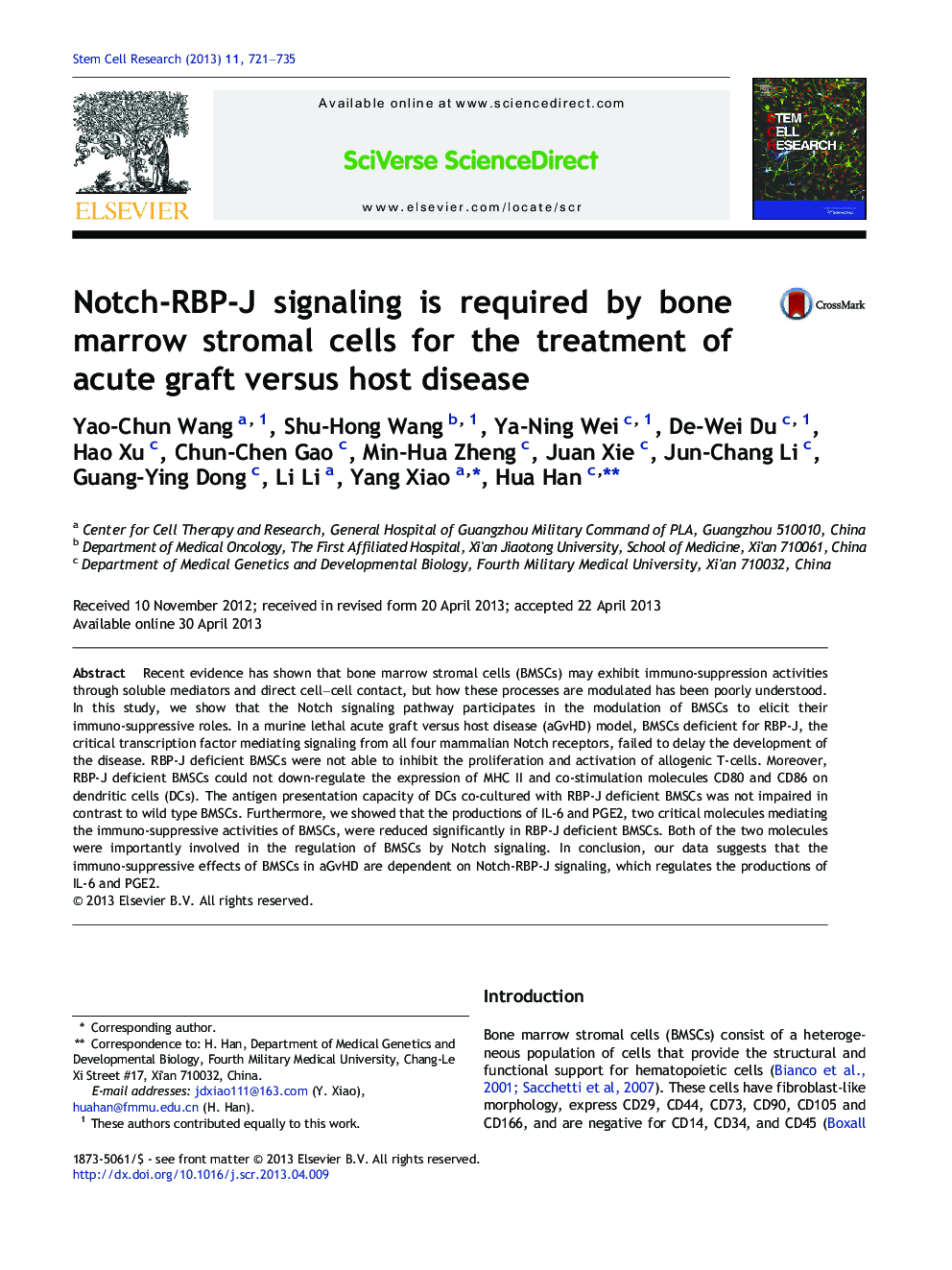| Article ID | Journal | Published Year | Pages | File Type |
|---|---|---|---|---|
| 10891407 | Stem Cell Research | 2013 | 15 Pages |
Abstract
Recent evidence has shown that bone marrow stromal cells (BMSCs) may exhibit immuno-suppression activities through soluble mediators and direct cell-cell contact, but how these processes are modulated has been poorly understood. In this study, we show that the Notch signaling pathway participates in the modulation of BMSCs to elicit their immuno-suppressive roles. In a murine lethal acute graft versus host disease (aGvHD) model, BMSCs deficient for RBP-J, the critical transcription factor mediating signaling from all four mammalian Notch receptors, failed to delay the development of the disease. RBP-J deficient BMSCs were not able to inhibit the proliferation and activation of allogenic T-cells. Moreover, RBP-J deficient BMSCs could not down-regulate the expression of MHC II and co-stimulation molecules CD80 and CD86 on dendritic cells (DCs). The antigen presentation capacity of DCs co-cultured with RBP-J deficient BMSCs was not impaired in contrast to wild type BMSCs. Furthermore, we showed that the productions of IL-6 and PGE2, two critical molecules mediating the immuno-suppressive activities of BMSCs, were reduced significantly in RBP-J deficient BMSCs. Both of the two molecules were importantly involved in the regulation of BMSCs by Notch signaling. In conclusion, our data suggests that the immuno-suppressive effects of BMSCs in aGvHD are dependent on Notch-RBP-J signaling, which regulates the productions of IL-6 and PGE2.
Related Topics
Life Sciences
Biochemistry, Genetics and Molecular Biology
Biotechnology
Authors
Yao-Chun Wang, Shu-Hong Wang, Ya-Ning Wei, De-Wei Du, Hao Xu, Chun-Chen Gao, Min-Hua Zheng, Juan Xie, Jun-Chang Li, Guang-Ying Dong, Li Li, Yang Xiao, Hua Han,
